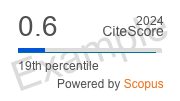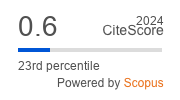The results of I phase clinical study of class III antiarrhythmic drug, tablet form
https://doi.org/10.29001/2073-8552-2023-38-4-141-150
Abstract
Aim: To evaluate the safety and tolerance of single dose or repeated doses administration of domestic class III antiarrhythmic agent Refralon (cavutilide), tablets, by healthy volunteers; and to study it’s pharmacokinetics and absolute bioavailability.
Material and Methods. Healthy male volunteers, aged 18 – 45 years were included in one of 7 cohorts: 1, 2, 4 и 6 mg PO, 1 mg IV (these cohorts included 6 people each), one cohort of 12 people who took 2 mg of the drug per day for 5 days, and one cohort of 6 menfor 10 days. Drug intake/injection, blood and urine tests, sampling for pharmacokinetic analysis, assessment of vital signs, ECG registration at specified points, Holter monitoring of ECG were performed in a hospital setting.
Results. The study included 48 volunteers 32 ± 7,2 years old, mean weight 74,6 ± 4,7 kg. No significant changes in blood and urine tests and vital signs in any of cohorts were registered. Among cohorts of single dose oral intake only maximum dose of 6 mg caused persistent statistically significant increase of the duration of the QT and QTc intervals. In cohort of multiple intake of 2 mg of the drug statistically significant increase of the QT/QTc duration was noted with maximum value on 9-10 days. By this time balance between absorption and elimination processes was achieved.
Conclusion. Duration of the QT/QTc intervals didn’t exceed reference values during the entire study in all cohorts of oral intake of Refralon, either single dose or repeated doses administration. Significant persistent increase of the duration of the QT and QTc intervals was registered only in cohort of maximum single dose of 6 mg intake and during intake of 2 mg of Refralon daily for 5-10 days. Stationary state was achieved by 8-10 day of Refralon intake.
About the Authors
Yu. A. YurichevaRussian Federation
Yulia A. Yuricheva, Senior Research Scientist, Department of Clinical Electrophysiology
15a, Akademika Chazova str., Moscow, 121552
Kh. M. Dzaurova
Russian Federation
Khava M. Dzaurova, Cand. Sci. (Med.), Junior Research Scientist, Department of Clinical Electrophysiology
15a, Akademika Chazova str., Moscow, 121552
M. M. Beliaeva
Russian Federation
Maria M. Beliaeva, Cand. Sci. (Med.), Junior Research Scientist, Department of Clinical Electrophysiology
15a, Akademika Chazova str., Moscow, 121552
N. Y. Mironov
Russian Federation
Nikolay Y. Mironov, Cand. Sci. (Med.), Senior Research Scientist, Laboratory of Interventional Methods of Diagnosis and Treatment of Heart Rhythm and Conduction Disorders and Syncopal Conditions
15a, Akademika Chazova str., Moscow, 121552
S. F. Sokolov
Russian Federation
Sergey F. Sokolov, Cand. Sci. (Med.), Leading Research Scientist, Department of Clinical Electrophysiology
15a, Akademika Chazova str., Moscow, 121552
T. A. Sherina
Russian Federation
Tatyana A. Sherina, Cand. Sci. (Med.), Medical Director
13/1, Malaya Pirogovskaya str., Moscow, 119435
S. P. Golitsyn
Russian Federation
Sergey P. Golitsyn, Dr. Sci. (Med.), Chief Scientific Officer, Department of Clinical Electrophysiology
15a, Akademika Chazova str., Moscow, 121552
References
1. Mironov N.Yu., Yuricheva Yu.A., Vlodzyanovskiy V.V., Sokolov S.F., Dzaurova K.M., Golitsyn S.P. et al. Safety and Effectiveness of Pharmacologic Conversion of Atrial Fibrillation and Flutter: Results of Multicenter Trial. Part I: Study Rationale, Design and Assessment of Effectiveness. Rational Pharmacotherapy in Cardiology. 2021;17(2):193–199. (In Russ.). DOI: 10.20996/1819-6446-2021-03-05.
2. Mironov N.Yu., Yuricheva Yu.A., Vlodzyanovskiy V.V., Sokolov S.F., Dzaurova K.M., Golitsyn S.P. et al. Safety and Effectiveness of Pharmacologic Conversion of Atrial Fibrillation and Flutter: Results of Multicenter Trial. Part II: Assessment of Safety. Rational Pharmacotherapy in Cardiology. 2021;17(5):668–673. (In Russ.). DOI: 10.20996/1819-6446-2021-10-06.
3. Lepeschkin E., Surawicz B. The measurement of the QT interval of the electrocardiogram. Circulation. 1952;6(3):378–388. DOI: 10.1161/01.cir.6.3.378.
4. Funck-Brentano C., Jaillon P. Rate-corrected QT interval: techniques and limitations. Am. J. Cardiol. 1993;72(6):17B–22B. DOI: 10.1016/00029149(93)90035-b.
5. Yuricheva Yu.A., Mironov N.Yu., Dzaurova Kh.M., Sokolov S.F., Ahmetov I.R., Subochev A.G. et al. Clinical study of tablet form of domestic antiarrhythmic drug class III on healthy volunteers. Russian Cardiology Bulletin. 2022;17(4):55–62. (In Russ.). DOI: 10.17116/Cardiobulletin20221704155.
6. Gagloeva D.A., Dzaurova H.M., Zelberg M.A., Mironov N.Yu., Yuricheva Yu.A., Sokolov S.F. et al. Preliminary results of a prospective randomized study comparing the efficacy and safety of refralon and amiodarone in cardioversion in patients with paroxysmal atrial fibrillation and flutter. Cardiovascular Therapy and Prevention. 2023;22(4):3527. (In Russ.). DOI: 10.15829/1728-8800-2023-3527.
7. Mironov N.Y., Vlodzyanovskiy V.V., Yuricheva Y.A., Sokolov S.F., Golitsyn S.P., Rosenstraukh L.V., Chazov E.I. Safety and effectiveness of electrical and pharmacological cardioversion in persistent atrial fibrillation. Part I: Study rationale, design and assessment of effectiveness. Rational Pharmacotherapy in Cardiology. 2018;14(5):664–669. (In Russ.). DOI: 10.20996/1819-6446-2018-14-5-664-669.
Review
For citations:
Yuricheva Yu.A., Dzaurova Kh.M., Beliaeva M.M., Mironov N.Y., Sokolov S.F., Sherina T.A., Golitsyn S.P. The results of I phase clinical study of class III antiarrhythmic drug, tablet form. Siberian Journal of Clinical and Experimental Medicine. 2023;38(4):141-150. (In Russ.) https://doi.org/10.29001/2073-8552-2023-38-4-141-150
JATS XML





.png)





























